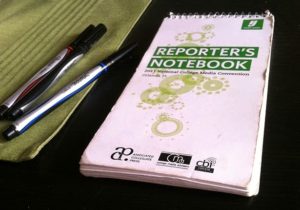Once upon a time — before newspapers began their long, slow slide into potential oblivion — journalists were given a chance to learn from their peers.
While working for two newspapers in Texas, in Beaumont and in Amarillo, I belonged to a professional group called the National Conference of Editorial Writers. At its peak, NCEW comprised about 600 or 700 members worldwide.
NCEW no longer exists. It has morphed into the Association of Opinion Journalists. I am no longer a member.
However, I was a proud NCEW member who thoroughly enjoyed the professional relationships I developed over roughly two decades. Many of those relationships have become deep personal friendships.
NCEW met annually somewhere in either the United States or Canada. The meetings lasted usually about four days. Members would gather at the location, get reacquainted and then take part in several business meetings.
I was able to attend NCEW gatherings in Lexington, Ky.; Phoenix; Ottawa, Canada; Baltimore, Seattle; Providence, R.I.; and Kansas City, Mo.
The highlight of these get-togethers always was the critique session. They were structure in a couple of ways: We could submit entire opinion pages or sections of our newspapers for a full critique, or we could submit writing samples of editorials or signed columns.
NCEW’s support staff would assign us to critique groups in advance of the meetings. We would pair up with another member and submit our work to that individual for his or her critique; the individual would send his or her work to me to critique.
We called these sessions our annual “blood-letting.” They could be brutal. Journalists as a sub-species of human being generally can be tough. Indeed, I heard stories at more than one of our annual meetings about editorial writers or editors being brought to tears by overly harsh critiques by colleagues.
I am happy to report to you that I managed to avoid such harsh treatment by my peers. One of my frequent critique partners, for instance, was Rick Horowitz, a humorist/columnist/writing coach who lives in Milwaukee, Wis. Horowitz writes with impeccable precision, but the good news is that while he demanded it of those whom he critiqued, he did so with kindness.
The sessions always were helpful. I always took plenty of good advice away from them. Sure, I shed a lot of proverbial “blood” during those critique sessions. Those colleagues who also are my friends didn’t flinch when they had the chance to assess the quality of the work I presented.
In the spirit of not taking myself too seriously, though, the good news is that we remain friends to this day.
If there is any aspect of my working life that I miss, it would be those sessions that spilled a lot of “blood.”
